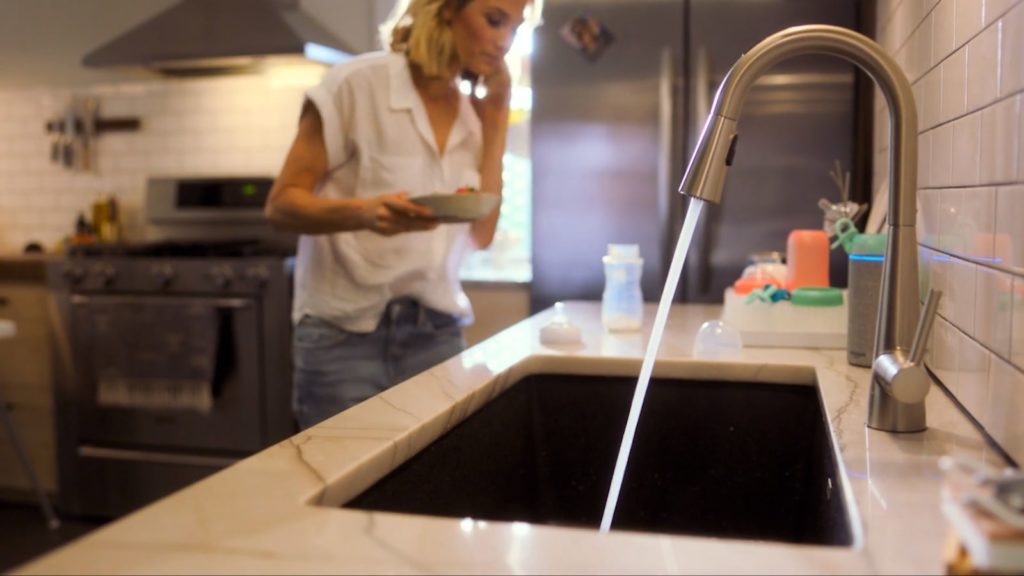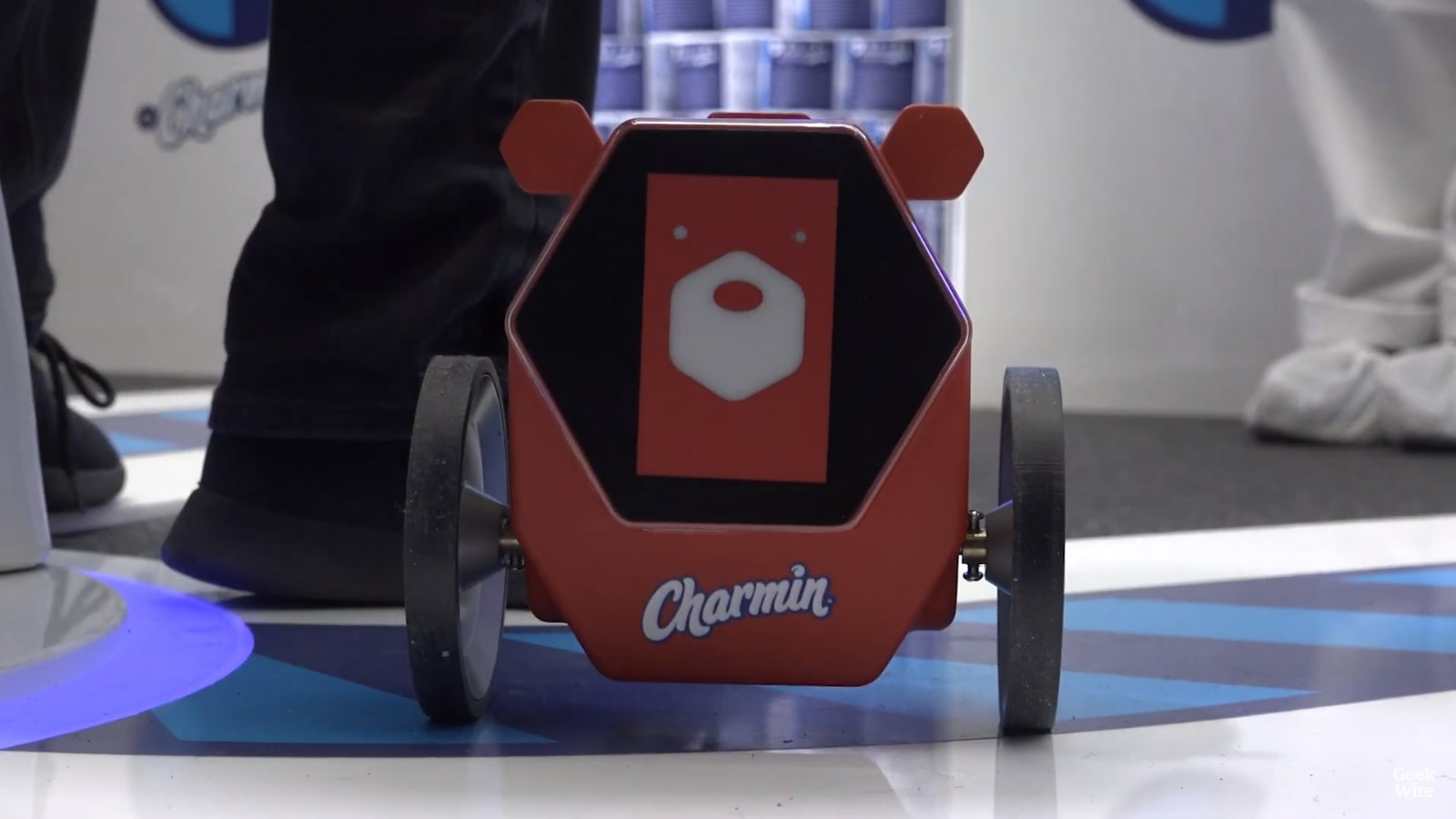Every year in Las Vegas, Consumer Technology Association hosts the Consumer Electronics Show (CES) the world’s biggest tech show. There’s no shortage of new and exciting gadgets announced, but some of them can be a bit odd. Most of the products shown range from sleek TVs to self-driving car ads, but there’s always a few that go a little out of the box.
First up, a toilet paper robot. Charmin announced it’s “RollBot,” a robot designed to bring a rescue roll of toilet paper so you don’t have to do the awkward, no-pants shuffle to the linen closet when you suddenly find yourself without that precious paper. While this sounds like a lifesaver, you currently can’t buy one as it’s still in the concept phase.
A sibling to the Qoobo (a robot pillow with a tail) has been announced, the “Petit Qoobo.” While no version exists in the commercial world, the Petit Qoobo is basically a pillow covered in cat fur with a wagging tail. It shares traits with its real-life counterparts and can move its tail to react to touch, meow and purr. While this is still a concept, you can buy its larger sibling the Qoobo, for $149 on Amazon.
Samsung’s “Ballie” wants to be your personal assistant! The tiny ball-like robot has various abilities such as acting as a home security system, a fitness assistant and can use AI to react to its owner’s ever-changing needs.
While you can currently use Amazon Alexa’s technology to activate your faucet and instruct it to fill your Hydro Flask, Moen has decided to make one that doesn’t require hooking your house up to the ever-terrifying Amazon AI. U by Moen hopes to create a world where you can complete tasks that require a sink hands-free.
The faucet is designed to dispense exactly the correct amount of water at the right temperature without going over by a drop. No release date or price has been announced, but Moen debuted a Smart Showerhead at CES in previous years.
In the most startling announcement, Samsung’s STAR Labs has announced “Neon,” an artificial human. The avatars are supposed to be able to carry on conversations that are human-like, using unique thoughts and emotions. STAR Labs hopes to be able to integrate these AI’s with everyday life, giving them various jobs like TV Anchors, financial advisors, nurses and doctors, concierges and companions or friends.
Related Articles
- Jeri’s Jackpot: You’re a Mean One, Mr. Grunch
- Social Credit System Rewards or Punishes Citizens Based on Behavior

The range of products wasn’t limited to just simply robotics though. This year at CES, “Impossible Pork” was revealed. Since pork is one of the most popular meats in the world today, Impossible Foods looked for a way to make a sequel to their hit from last year, the Impossible Burger 2.0. Another plant-based meat look-alike, Impossible Pork received high marks from those who tried it at CES 2020.
The production and mass release of plant-based meats would bring about a reduction in greenhouse gases being released. Along with helping to save the environment, the meats are healthier and can be eaten in larger quantities, so no need to feel bad about pigging out!
Tokyo unveiled its “City of the Future,” a prototype city that will be built near Mount Fuji in Japan, in place of a previously defunct manufacturing plant. The plan is for all vehicles to be hydrogen-powered, as well as introducing new ways of living such as integrating robots and new means of personal mobility. The city will be known as Woven City and anyone who wants to will be able to take up residence.
Following on the heels of the health craze, several new health products were announced as well. The Withings, “ScanWatch” includes an electrocardiogram, SpO2 sensor, a photoplethysmography for optical heart rate and it also has the ability to detect sleep apnea.
The GoBe3 can track calorie intake, and detect your stress levels based on skin readings, similar to lie detectors. The Valencell blood-pressure detecting earbuds help to track your blood pressure and can even indicate the beginning stages of hypertension.
Folding phones have been a thing since the early 2000s, when our cell phones weren’t nearly as smart and could fit in any pocket you needed it to.
Now the technology has been updated for the modern era and those smartphones that seem to be getting bigger could actually be able to fold in half and fit in your pocket.
Now imagine if you could take your tablet and fold it like a phone, or if your computer was all screen and no keyboard but still folded in half. Intel’s “Horseshoe Bend” is the latest and most innovative of this concept, starting off as a 17-inch tablet that can fold into a 12.5-inch laptop. However, as it stands, you still have to attach a keyboard and mouse.
Soundwave technology has been unveiled, meaning we could be closer to iconless technology than we think. Holo-screens and the ability to project your phone or laptop screen on any surface you wish may not just be a sci-fi movie scenario soon enough.
Self-driving cars are the technology of the future and no one is taking that to extremes like Audi. They unveiled their new concept car, the AI:Me. The car still has a steering wheel but it’s not required most of the time. Audi included an ‘infotainment system’ to fill the passengers’ time, which includes a mini table for you to enjoy your breakfast and the ability to change the music by looking out the window.
Tech start-up Prinker unveiled their temporary tattoo machine, which works by simply passing the device over your skin. The device then lays down a temporary tattoo in either color or black and white, depending upon the user’s choice. Prinker says a single cartridge is good for up to 1,000 tattoos and is made of cosmetic-grade ink.
These are just some of what was unveiled at this year’s tech expo and it proves that humans are advancing further toward the worlds we see in sci-fi movies and video games. Thanks to NBC and CNET for a rundown of the show, and you can find more information on the products announced on CNET’s website.
Jeri Hensley
Reporter


